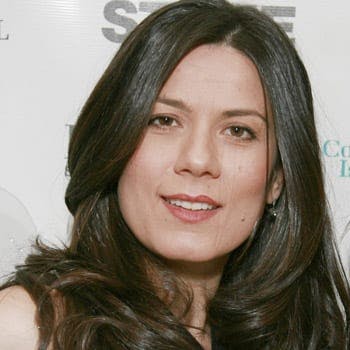Allanah Zisterman and her partner Stavros Kazantzidis are the creative entrepreneurs behind the international Cockatoo Island Film Festival (CIFF), which was a sell-out when it opened in Sydney this week.
It goes without saying that organising a festival showcasing 100 international and local films as well as 200 shorts and documentaries is no easy feat, but the duo have had some serious success in the events business before. In 2006, they created the Dungog Film Festival, which has since grown to become the world’s biggest festival of Australian films, with 16,000 tickets sold last year and some 10,000 people attending.
The CIFF has been a different kettle of fish though, according to the pair, as they’ve incorporated other elements to the event to give it wider appeal – including cinema master-classes, breakfast with the stars, red carpet events, a family picnic for 10,000 people as well as a classic boat race on the harbour. And, don’t forget, this all happened on an island, which meant the organisers faced logistical challenges on top of the financial and growth issues they were already grappling with.
In this interview, Zisterman reveals to Dynamic Business how in business, sometimes your biggest challenge can actually be your greatest asset.
What’s been the toughest problem you’ve faced in creating, developing and realising the Festival?
There have been a number of key problems we have faced. First, raising the finance; second, managing the meteoric growth of the organisation; third, the logistical challenges of a destination based film event; and finally, delivering a marketing campaign on a shoestring budget.
How have you managed to solve some of these problems?
Convincing sponsors and partners of the viability of the vision and our ability to deliver the size and magnitude of the event in its first year has taken serious convincing.
We have achieved this partly due to a powerful belief in our vision that has proven infectious plus a lot of negotiations that include long-term agreements, corporate hospitality packages and creative partner benefits that provide real leverage for brands.
What are the toughest lessons you’ve learned while getting the Festival off the ground?
The toughest lesson has to be building a film city on an island. This is a logistical challenge of epic proportions and even though Dungog was a tricky location it pales in comparison to Cockatoo Island. But, of course, it’s this very thing that makes the festival such a unique product and it’s already proving to be attractive to the international film community.
Another issue has been properly educating the public about the product. Usually we stand by the “start small think big” theory but the location demanded something grand from the get-go. We therefore are delivering in our inaugural year an ambitious and daring vision.
We’ve had to work to convince our potential audience, who haven’t yet experienced or heard of the event and therefore can’t quite grasp the quality and the many layers within it, to put their hands in their pockets. To expedite the education process, we’ve had to roll out a wide range of traditional and grassroots marketing plus engage with a very diverse range of programming partners to reach their already developed audiences with the aim that this will provide us a core grassroots demographic.
What advice would you give an entrepreneur who was trying to launch and produce an event for the public?
Believe in your vision and don’t steer off course. Make sure what you are offering is something distinctively different. Stare down the naysayers. Be prepared to take risks – and take a lot of vitamins.
In terms of the overall business management of the event, what are three of the most significant learnings you have gained out of the process?
1.Trust your staff but don’t be afraid to let go of staff that aren’t working out.
2. Have a strong marketing plan and don’t underestimate the power of grassroots
3. Creating clear communication systems is key – both internally and externally

